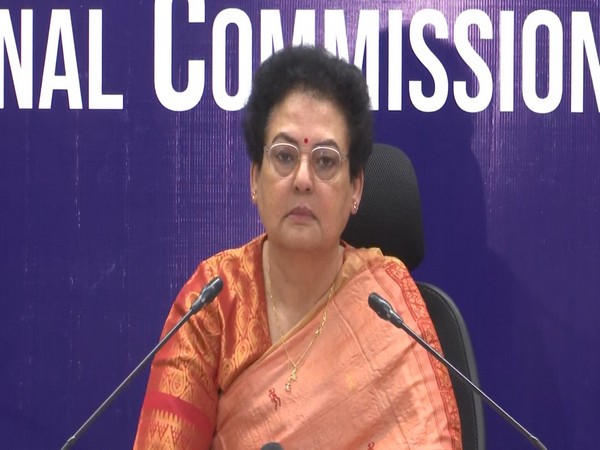After the Supreme Court on Wednesday ruled that a divorced Muslim woman is entitled to a claim of maintenance under Section 125 of the Code of Criminal Procedure (CrPC), 1973, against her former husband, National Commission for Women (NCW) chairperson Rekha Sharma expressed her satisfaction saying that the decision is a significant step towards ensuring gender equality and justice for all women, regardless of their religion.
“I wholeheartedly welcome the Supreme Court’s landmark ruling that affirms the right of Muslim women to seek maintenance under Section 125 of the Code of Criminal Procedure (CrPC). This decision is a significant step towards ensuring gender equality and justice for all women, regardless of their religion,” said the NCW chief.
“It reinforces the principle that no woman should be left without support and protection under the law. The NCW remains committed to advocating for the rights of women and ensuring that justice prevails for every woman in India,” she emphasised further.
Notably, the top court also echoed that the time has come for Indian men to recognise the role and sacrifice of ‘homemakers’ who are the strength and backbone of an Indian family and they must provide financial support to her by having joint accounts and ATMs.
A bench of justices BV Nagarathna and Augustine George Masih ruled that Section 125 CrPC, which deals with a wife’s legal right to maintenance, is applicable to all women and divorced muslim females can claim maintenance from their husband under it.
“Section 125 of the CrPC applies to all married women including Muslim married women. Section 125 of the CrPC applies to all non-Muslim divorced women,” the top court said.
“Insofar as divorced Muslim women are concerned, – i) Section 125 of the CrPC applies to all such Muslim women, married and divorced under the Special Marriage Act in addition to remedies available under the Special Marriage Act. If Muslim women are married and divorced under Muslim law then Section 125 of the CrPC as well as the provisions of the 1986 Act are applicable. Option lies with the Muslim divorced women to seek remedy under either of the two laws or both laws. This is because the 1986 Act is not in derogation of Section 125 of the CrPC but in addition to the said provision,” the top court said.
If Section 125 of the CrPC is also resorted to by a divorced Muslim woman, as per the definition under the 1986 Act, then any order passed under the provisions of 1986 Act shall be taken into consideration under Section 127(3)(b) of the CrPC, the court said.
The 1986 Act could be resorted to by a divorced Muslim woman, as defined under the said act, by filing an application thereunder which could be disposed off in accordance with the said enactment, the court said.
In case of an illegal divorce as per the provisions of the 2019 Act then, relief under Section 5 of the said Act could be availed for seeking subsistence allowance or, at the option of such a Muslim woman, remedy under Section 125 of the CrPC could also be availed, the court said.
Adding further to it, the top court directed if, during the pendency of a petition filed under Section 125 of the CrPC, a Muslim woman is ‘divorced’ then she can take recourse under Section 125 of the CrPC or file a petition under the 2019 Act.
“The provisions of the 2019 Act provide a remedy in addition to and not in derogation of Section 125 of the CrPC,” the top court said.
The top court’s ruling came on an appeal challenging the High Court of Telangana order dated December 13, 2023 which modified the family court decision. HC decreased the quantum of interim maintenance payable by the Appellant herein from Rs 20,000 per month to 10,000 per month.-ANI


